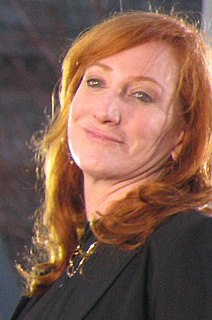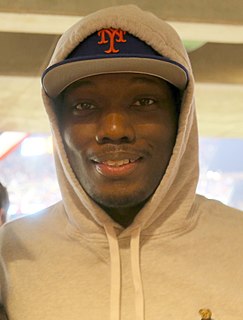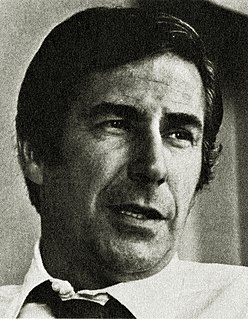A Quote by Patti Scialfa
You know how you get close to something you want and then you start doing things to ensure that you don't quite get it? I did a lot of that.
Related Quotes
Most actors don't know what they're going to do next, so you get into this thing where you have to force yourself to have another life outside of acting. And then, as soon as you start something in this sort of normal life that you're trying to live, you get a job. So you have this constant struggle because you want to be able to commit to things and to finish things in your life, but then you also want to be able to act.
I don't think we know yet what broadcast television did to us, although it obviously did lots. I don't think we're far enough away from it yet to really get a handle on it. We get these things, I think they start changing us right away, we don't notice we're changing. Our perception of the whole thing shifts, and then we're in the new way of doing things, and we take it for granted.
Most of my life, everybody made more money than I did at the places I worked. In fact, when I've been an employee, I have never been anywhere close to being the highest paid person there, never. I was working hard. I was working hard. I was doing things I didn't want to do, that I thought I should do. I was getting up every day, going to work, did not phone in sick. Striving. Trying to get ahead, you know, doing what Obama says, working hard and applying myself and trying to get ahead. There was always somebody, there were always a lot of people that earned more than I did.
Forget being the best of anything. That's the fruit of the action, and you do the work -they say- for the doing, not the fruit. You can never really know how it's gonna turn out in the world but you know if you enjoy doing it. And ideas start flowing and you start getting, you know, excited about stuff. Then you're having a great time in the doing and that's what it's all about. If you don't enjoy the doing, then do something else.
I mean people -- people don't get -- they don't get smarter about things that get as basic as greed and you can't stand to see your neighbor getting rich. You know you're smarter than he is, and he's doing these things, you know, and he's getting rich, and your spouse is getting unhappy with you because you aren't doing -- pretty soon you start doing it. And so you get what I call the natural progression, the three Is. The innovators, the imitators, and the idiots.
When I was younger I didn't really know what a director did: I knew I loved movies and I figured the actors made it up! And then when you get to 12 years old you start thinking, What does a director do? It was really an organic beginning: this looks like something I want to do, I can't believe people get paid to do it!
I think it's good to, especially when you start to get to achieve certain levels of success and start doing a lot of interviews and having a lot of reviews, it would be quite easy to get pretty full of yourself. I think it's an important thing to try and keep yourself in check and just be aware that popularity doesn't necessarily run in parallel to quality.
When I started that's how I wrote because I didn't know any better. I was just like "I want to make music." Then there were all these things that I learned to get myself over certain humps, but I think it just comes down to: do I have something to say or not? If I'm feeling something I should try to get that out, and maybe it's not words, but trying to turn it into something.
I think the answer is we all need a little help, and the coffee's a little help with everything — social, energy, don't know what to do next, don't know how to start my day, don't know how to get through this afternoon, don't know how to stay alert. We want to do a lot of stuff; we're not in great shape. We didn't get a good night's sleep. We're a little depressed. Coffee solves all these problems in one delightful little cup.




































